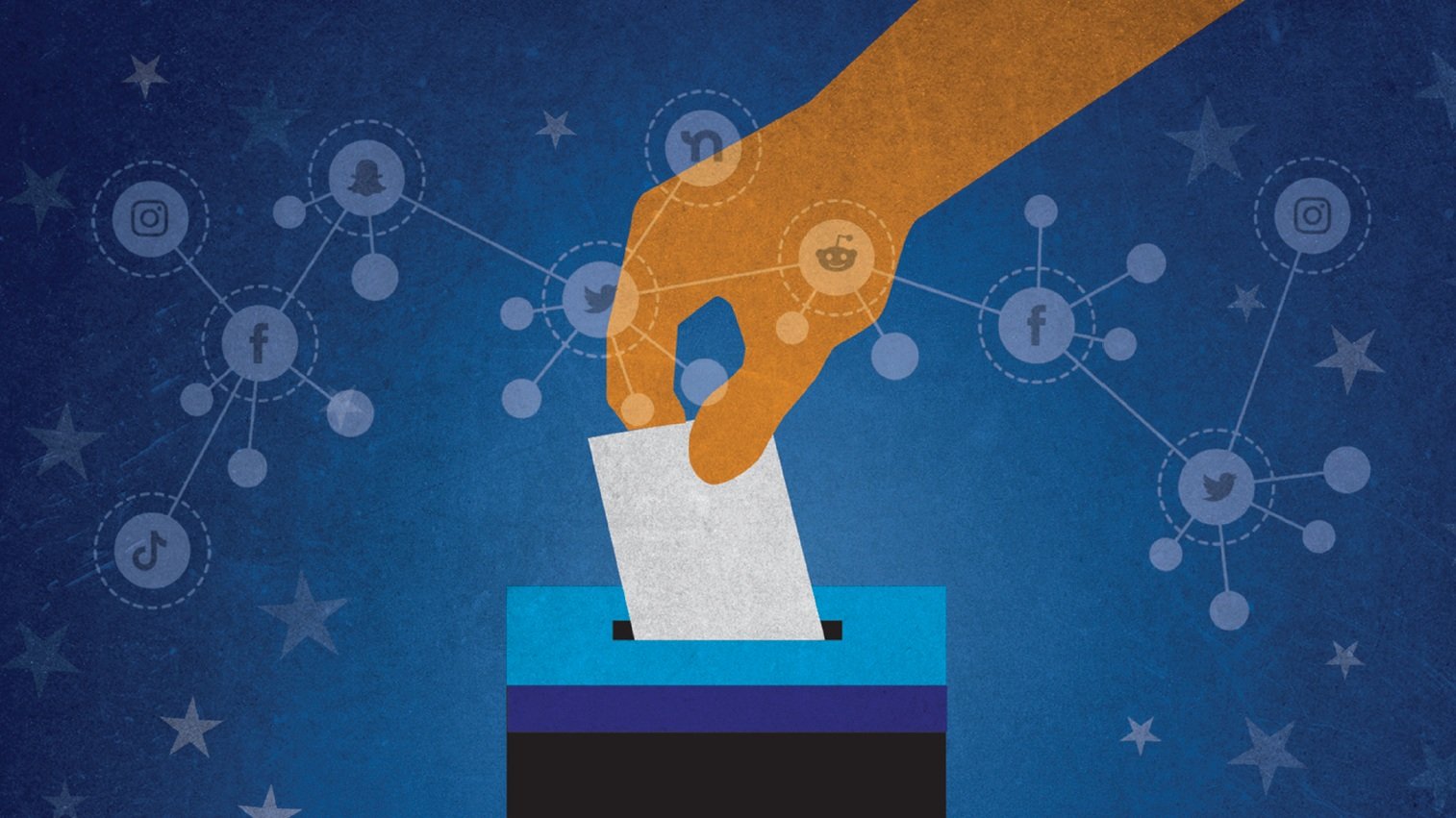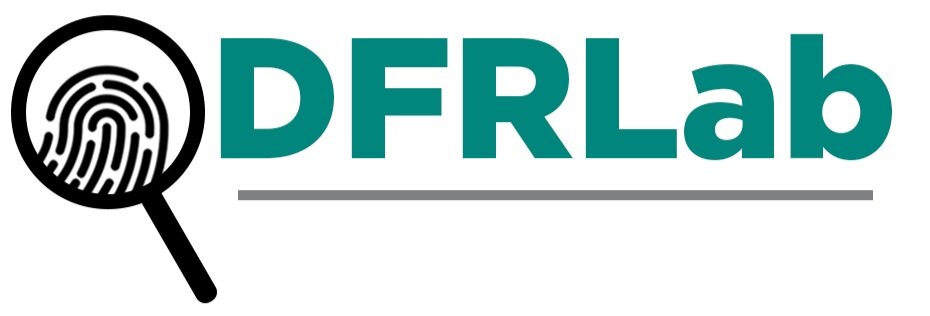The 2020 Election Integrity Partnership
The Election Integrity Partnership (EIP) was formed in July 2020 as a coalition of research entities focused on supporting real-time information exchange between the research community, election officials, government agencies, civil society organizations, and social media platforms.
Our objective was to detect and mitigate the impact of attempts to prevent or deter people from voting or to delegitimize election results. In March 2021 we published our final report. This page displays an archive of the work carried out by the EIP and its partners during the 2020 U.S. election.

The Final Report.
The Long Fuse: Misinformation and the 2020 Election.
Blog archive.
Blog posts and publications during the 2020 election cycle.
filter by…


Vote Data Patterns used to Delegitimize the Election Results
Attempts delegitimize the election have widened to involve the use of misleading numbers and data. One of the more sophisticated examples of this strategy spreading online involves citation of “Benford’s Law”.

Media Largely Frames Trump’s Victory Declaration as False in Headlines
The way the media frames misinformation plays a role in how the public interprets, remembers and ultimately believes the information. After President Donald Trump claimed victory during a press conference early this morning, media outlets faced the challenge of how to report it.




Repeat Offenders: Voting Misinformation on Twitter in the 2020 United States Election
We look back at the set of misleading stories the EIP reviewed to identify which Twitter accounts consistently share false or misleading content about the upcoming election, and from where these accounts source this misleading information, and identified 43 cases. Across our dataset relating to these 43 incidents, more than 50% of all retweets can be traced back to “original” tweets from only 35 users (out of over 600K users in our dataset). We document how these users engaged in reframing, and decontextualization to spread misinformation.

Seeking To Help and Doing Harm: The Case of Well-Intentioned Misinformation
We have identified several instances of apparently well-meaning but misleading content, which typically takes the form of flawed public-service announcements or calls to action. Such content that seeks to help but does harm is best characterized as well-intentioned misinformation: false or misleading information which — if it were not false — would be spread toward constructive ends. This post is motivated by the idea that by describing prototypical cases of well-intentioned misinformation, and by outlining best practices to contain its spread, we might reduce the threat it poses to the upcoming election.

The Ballot Harvesting Trope
Ballot collecting, or ballot harvesting as it is more adversarily known, is legal either with or without restrictions in 26 states. The practice in its simplest form allows a designated agent to deliver an absentee or vote-by-mail ballot on behalf of a voter. Proponents say it increases voter turnout by limiting the barriers to vote. Opponents say it can enable bad actors to change or destroy ballots. In the past month, EIP has received and analyzed numerous reports related to ballot harvesting. Some contained no falsifiable claims and were therefore unactionable under our procedures. Others had already received widespread coverage from media outlets. We see this complex topic as a repeated narrative leading up to the election.

“Friend of a Friend” Stories as a Vehicle for Misinformation
When it comes to electoral misinformation stories heard from “a friend of a friend” can be dangerous vectors for spread. We find viral spread of these types of post and inconsistent platform policy responses.

Analysis of Wednesday’s foreign election interference announcement
This week has seen a flurry of activity related to potential voter suppression, starting with the sending of threatening emails, purportedly from the Proud Boys, to voters in several states; the release of a video purporting to show the hacking of voter registration databases; and finally the attribution of this activity to the Islamic Republic of Iran by the United States government.

Narratives Targeting Electronic Voting Machines
As Americans begin to vote in person, we are seeing attacks emerge targeting the integrity of electronic voting machines. This narrative is not new in the 2020 cycle, in 2016 and 2018 it was weaponized by both foreign and domestic bad actors. In this post, we dive into three of these key narratives.

False voting claims spread via websites and Facebook ads
Two websites, Plain Truth Now (plaintruthnow.org) and Civil Rights International (civilrightsinternational.org), appear to be connected to each other. Both websites post a mix of content about Nigerian and US politics, and have cross-posted the same content, including a post with false claims about fraudulent voting.

Laying the Groundwork: Meta-Narratives and Delegitimization Over Time
Prominent conservative influencers have begun to spread a ‘color revolution’ narrative, which claims that protests (“riots”) and alleged ballot irregularities are evidence that the US is experiencing a deep-state backed color revolution. This is an example of preemptive de-legitimization of election results — it is a meta-narrative that provides a scaffolding on which any ballot or protest can be inflected as another example of a vast conspiracy to overthrow the President or steal the election.

A Look Into Viral North Macedonian Content Farms
Clickbait operators in the town of Veles in North Macedonia are running a number of websites that target conservative Americans with partisan content copied from American outlets. The websites are gaining significant traffic, especially from what appears to be the operators’ account on Parler, which is a major influencer with hundreds of thousands of followers.


Foreign vs Domestic: An Examination of Amplification in a Ballot Misinformation Story
This post analyzes a recent case of false information around discarded ballots in order to explore the scope and impact of foreign intervention relative to domestic drivers — an important dynamic to understand, particularly as media coverage often disproportionately focuses on instances of foreign interference, which can unduly elevate the assumed influence of foreign adversaries

Project Veritas #BallotHarvesting Amplification
On Sunday night, a right-wing activist group, Project Veritas, released a video alleging illegal ballot harvesting in Minnesota. The video made several falsifiable claims that have either been debunked by subsequent reporting or are without any factual support. As the video calls into question the integrity of the election using misleading or inaccurate information, we determined this video to be a form of election disinformation. While we have reported our findings to the relevant online platforms, this video stands as an interesting example of what a domestic, coordinated elite disinformation campaign looks like in the United States. This post will explore the timeline of how the ideas in this video were initially seeded and then aggressively spread.

Emerging Narratives Around ‘Mail Dumping’ and Election Integrity
On Wednesday, Sept. 23, the hyper-partisan, right-wing news website Gateway Pundit published an article stating that a batch of mail — including absentee ballots — had been found in a ditch in Greenville, Wisconsin. The article, which borrowed heavily from local media for factual details about the actual incident, falsely framed the situation as evidence that Democrats were “stealing the 2020 election.” (There is no evidence that the incident was politically motivated, that it is part of a pattern or strategy, or that it will have any effect on the election.) The false framing built upon and amplified existing narratives that mail-in voting is untrustworthy and other unfounded claims that there will be widespread fraud in the 2020 U.S. election.





